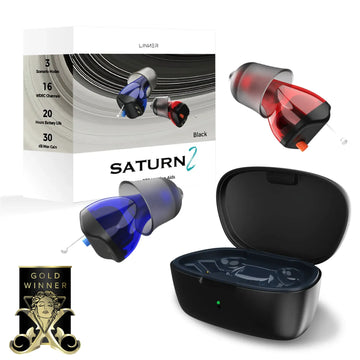Tinnitus, commonly characterized by persistent ringing, buzzing, or humming in the ears, remains one of the most misunderstood auditory phenomena. Despite its widespread prevalence, misconceptions abound. By gaining a deeper understanding of its causes, implications, and treatments, we can better empathize with and support those affected.
At its core, tinnitus is the perception of sound when no external sound source exists. While many define it as a "ringing," the sound can vary greatly among individuals, ranging from high-pitched whistling to a low roaring.
Tinnitus can be triggered by a multitude of factors:
- Noise-Induced Hearing Loss: Prolonged exposure to loud sounds, whether from work environments or leisure activities, remains a common cause.
- Earwax Blockages: Something as simple as a buildup of earwax can lead to temporary tinnitus.
- Medications: Some medications list tinnitus as a potential side effect, especially when taken in higher doses.
- Ear and Sinus Infections: Infections can lead to temporary tinnitus which usually subsides after recovery.
- Underlying Medical Conditions: Issues like high blood pressure, thyroid problems, and even tumors can manifest as tinnitus.
- Symptoms and Their Variability: While the defining symptom of tinnitus is the perception of sound, the type, pitch, volume, and even the rhythmic pattern can differ. Some hear a constant tone, while others experience intermittent sounds. Additionally, the perceived location of the sound can differ – with some reporting it as coming from one ear, both ears, or even the middle of the head.
Beyond the auditory disturbance, tinnitus can take a significant emotional and psychological toll. Difficulty concentrating, sleep disruptions, anxiety, and even depression can be exacerbated by persistent tinnitus.
Modern Approaches to Relief:
- Sound Therapy: By using devices like the LINNER Deluxe, sound therapy provides external noises that can mask or reduce the perception of tinnitus, offering much-needed relief.
- Cognitive Behavioral Therapy (CBT): This approach addresses the emotional response to tinnitus, helping individuals cope better and reduce stress associated with the condition.
- Hearing Aids: If tinnitus is accompanied by hearing loss, hearing aids can help amplify external sounds, thus drowning out or minimizing tinnitus sounds.
- Tinnitus Retraining Therapy (TRT): This combines sound therapy and teaching to reduce the emotional reaction to tinnitus over time.
While not all forms of tinnitus are preventable, avoiding excessive noise, using ear protection, and managing stress can play pivotal roles in reducing the risk or severity of tinnitus.
Tinnitus, while often invisible to outsiders, carries profound implications for those affected. As understanding grows and treatments advance, there's hope that the distress caused by tinnitus can be mitigated, leading to improved quality of life for millions.






![Linner Mercury Clarity OTC Hearing Aids [FSA & HSA Eligible] Linner](http://www.linnerlife.com/cdn/shop/files/Linner-Mercury-Clarity-OTC-Hearing-Aids-_FSA-_-HSA-Eligible_-Linner-110038953.webp?v=1725853434&width=360)

